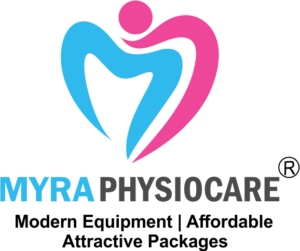Frozen Shoulder
Frozen shoulder, also known as adhesive capsulitis, is a condition in which the shoulder joint becomes stiff and painful. It is caused by the thickening and tightening of the capsule that surrounds the shoulder joint. This limits the range of motion and makes it difficult to move the arm.
The symptoms of frozen shoulder usually develop gradually over time and can last for several months or even years. They include:
- Pain in the shoulder that worsens at night or when the arm is moved
- Stiffness in the shoulder joint that makes it difficult to move the arm
- Limited range of motion in the shoulder joint
- Weakness in the shoulder muscles
Frozen shoulder typically goes through three phases:
Freezing phase: This is the painful stage where the shoulder becomes stiff and difficult to move. It can last anywhere from a few weeks to several months.
Frozen phase: During this stage, the pain may begin to subside, but the shoulder remains stiff and movement is limited. This phase can last for several months.
Thawing phase: In this final phase, the shoulder gradually regains its range of motion and the pain diminishes. This phase can last for several months to a year.
- The exact cause of frozen shoulder is not well understood, but it often occurs after an injury or surgery to the shoulder. Other risk factors include diabetes, thyroid disorders, and Parkinson’s disease. Treatment options include physical therapy, pain medication, and in severe cases, surgery.
Why Choose Frozen Shoulder
There are a few reasons why someone might want to learn more about frozen shoulder:
They are experiencing symptoms: If someone is experiencing pain, stiffness, or limited range of motion in their shoulder, they may be wondering if they have frozen shoulder. Learning more about the condition can help them understand their symptoms and seek appropriate treatment.
They know someone with the condition: If someone knows someone who has been diagnosed with frozen shoulder, they may want to learn more about the condition to better understand what their loved one is going through and how they can support them.
They are a healthcare professional: If someone is a healthcare professional, they may encounter patients with frozen shoulder and want to learn more about the condition to provide better care.
They want to prevent the condition: If someone has risk factors for frozen shoulder, such as diabetes or a history of shoulder injuries, they may want to learn more about the condition to take steps to prevent it from developing.
If someone is experiencing pain, stiffness, or limited range of motion in their shoulder, they may be wondering if they have frozen shoulder. Learning more about the condition can help them understand their symptoms and seek appropriate treatment.
If someone knows someone who has been diagnosed with frozen shoulder, they may want to learn more about the condition to better understand what their loved one is going through and how they can support them.
If someone is a healthcare professional, they may encounter patients with frozen shoulder and want to learn more about the condition to provide better care.
If someone has risk factors for frozen shoulder, such as diabetes or a history of shoulder injuries, they may want to learn more about the condition to take steps to prevent it from developing.
Why Choose Frozen Shoulder
There are a few reasons why someone might want to learn more about frozen shoulder:
